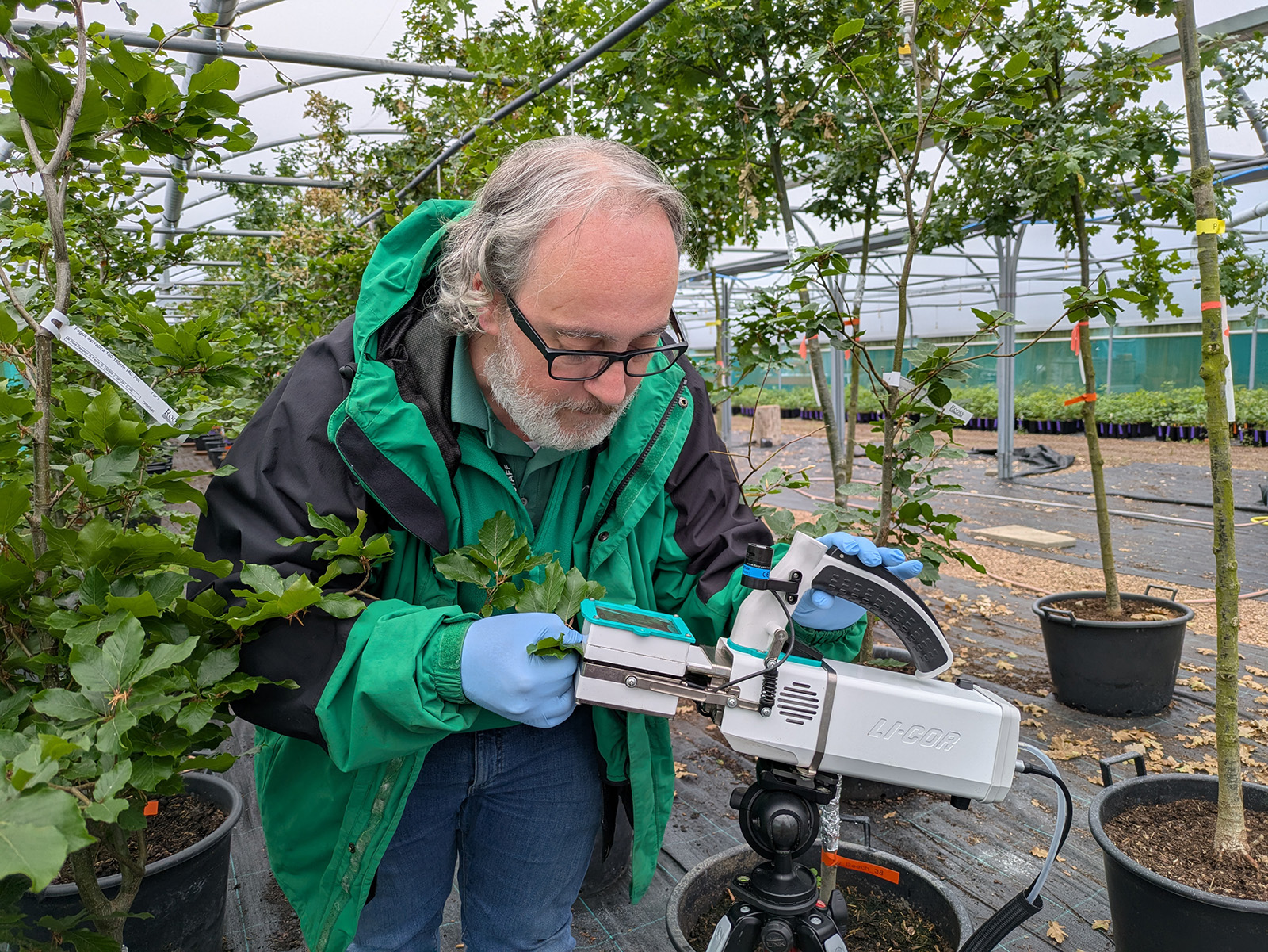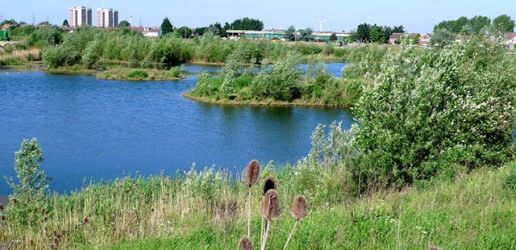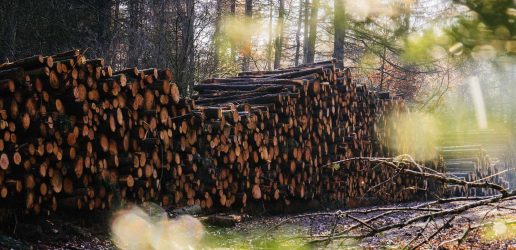Scientists at Forest Research are seeking practitioners who have experience of planting, managing or overseeing a tree species mixture to take part in a short survey.
The survey will form part of a new Centre for Forest Protection research project which investigates the resilience of mixed species – compared to single species – stands as part of efforts to improve resilience to drought in the face of the climate emergency.
“By sharing your knowledge and experience with us, you’ll be helping to influence which species mixtures we prioritise in our research, and ultimately help shape future drought guidance for the UK forestry sector”, said George Xenakis, senior climate change scientist at Forest Research.
The growing threat of droughts
Climate change is expected to increase the frequency and severity of droughts, posing significant challenges for forest ecosystems. Establishing mixed-species forests, as recommended by the UK Forestry Standard, may help their ability to adapt to drought conditions – however the current evidence base is inconclusive.
This project will combine innovative experimental approaches such as Internet of Things sensors and remote sensing, with essential stakeholder consultations – like the survey.
By sharing your knowledge and experience with us, you’ll be helping to influence which species mixtures we prioritise in our research
The overarching aim of the project is to assess whether planting mixtures improves drought resilience, by trialling those recommended as part of our stakeholder consultation. The research findings will be used to provide practical guidance and policy recommendations for forest management.
Visit the Forest Research Climate Change Hub to find out more about the project and our current drought guidance.

This project is being delivered by Forest Research, as part of research funded by the Centre for Forest Protection, a joint venture led by Forest Research and the Royal Botanic Gardens Kew and financed by The Department for Environment, Food and Rural Affairs.
The University of Edinburgh and INRAE in France are project partners.
Recent News
View All news
New land regeneration resources for creating green spaces on previously used land now available
The new resources bring together the latest learnings on land regeneration and climate change, and optimal soil thickness for planting on previously used land.

New national survey launched to strengthen plant pest and disease detection across UK horticulture
UK horticulture and landscaping businesses invited to take part in survey to strengthen non-native plant pest and disease detection and reporting.
Forestry and timber businesses across the UK are being asked to take part in an annual survey programme to collect data about the UK timber industry.

New land regeneration resources for creating green spaces on previously used land now available
The new resources bring together the latest learnings on land regeneration and climate change, and optimal soil thickness for planting on previously used land.

New national survey launched to strengthen plant pest and disease detection across UK horticulture
UK horticulture and landscaping businesses invited to take part in survey to strengthen non-native plant pest and disease detection and reporting.
Forestry and timber businesses across the UK are being asked to take part in an annual survey programme to collect data about the UK timber industry.

